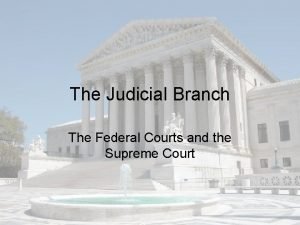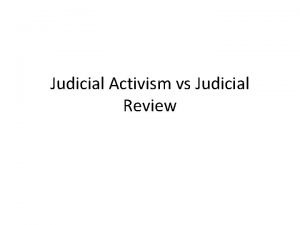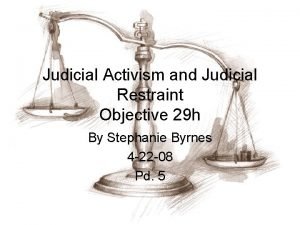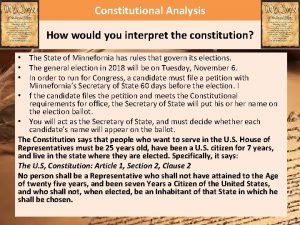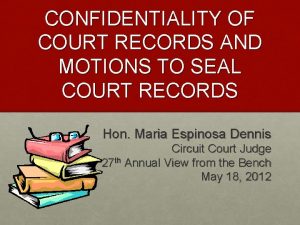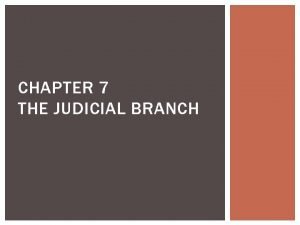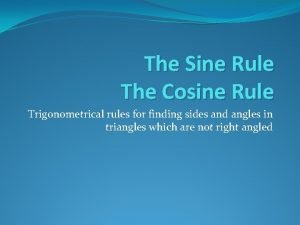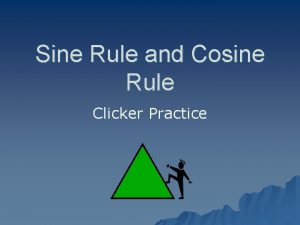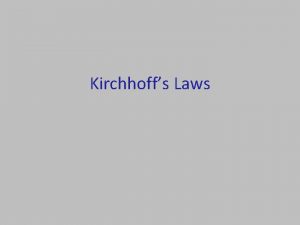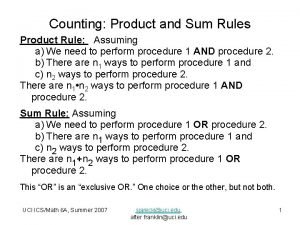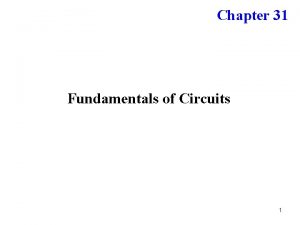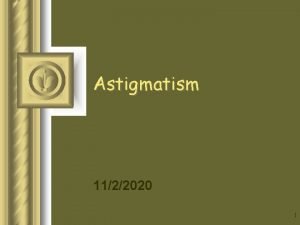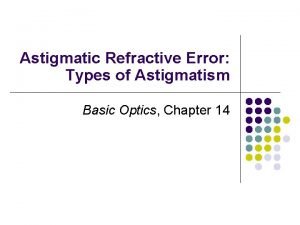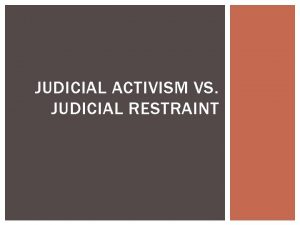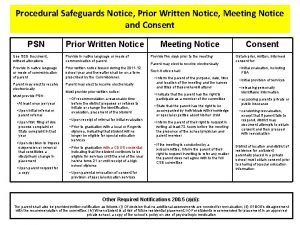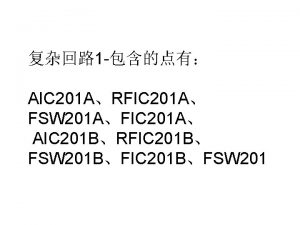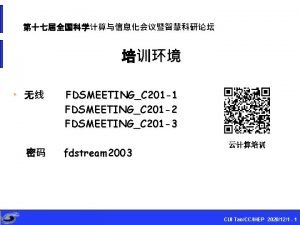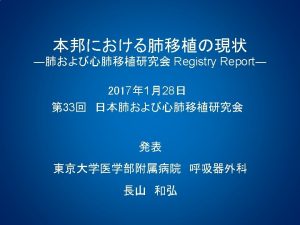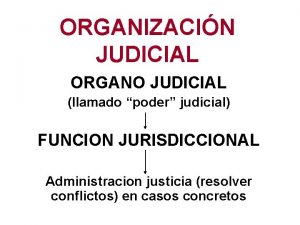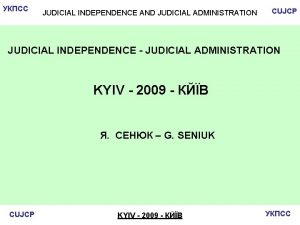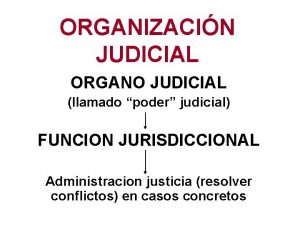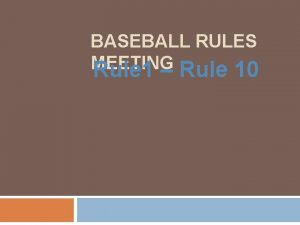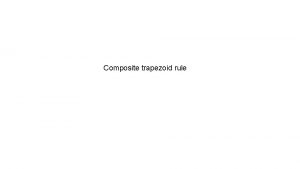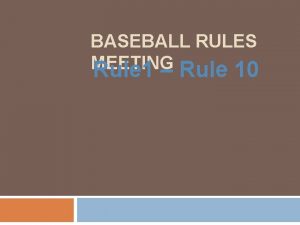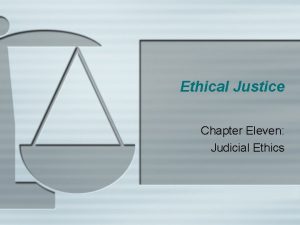Chapter 14 Judicial Notice Rule 201 Judicial Notice

















- Slides: 17

Chapter 14 Judicial Notice

Rule 201. Judicial Notice of Adjudicative Facts (a) Scope. This rule governs judicial notice of an adjudicative fact only, not a legislative fact.

Adjudicative v. Legislative Facts • Adjudicative facts are simply the facts of the particular case. Legislative facts, on the other hand, are those which have relevance to legal reasoning and the lawmaking process, whether in the formulation of a legal principle or ruling by a judge or court or in the enactment of a legislative body. FRE 201 Notes of Advisory Committee on Proposed Rules

Rule 201. Judicial Notice of Adjudicative Facts (b) Kinds of Facts That May Be Judicially Noticed. The court may judicially notice a fact that is not subject to reasonable dispute because it: (1) is generally known within the trial court’s territorial jurisdiction; or (2) can be accurately and readily determined from sources whose accuracy cannot reasonably be questioned.

Rule 201. Judicial Notice of Adjudicative Facts (c) Taking Notice. The court: (1) may take judicial notice on its own; or (2) must take judicial notice if a party requests it and the court is supplied with the necessary information. (d) Timing. The court may take judicial notice at any stage of the proceeding.

Rule 201. Judicial Notice of Adjudicative Facts (e) Opportunity to Be Heard. On timely request, a party is entitled to be heard on the propriety of taking judicial notice and the nature of the fact to be noticed. If the court takes judicial notice before notifying a party, the party, on request, is still entitled to be heard. (f) Instructing the Jury. In a civil case, the court must instruct the jury to accept the noticed fact as conclusive. In a criminal case, the court must instruct the jury that it may or may not accept the noticed fact as conclusive.

II. Judicial Notice of Adjudicative Facts A. The Difference Between Adjudicative and Legislative Facts

United States v. Gould 8 th Circuit 536 F. 2 d 216 (1976) 648

II. Judicial Notice of Adjudicative Facts B. Judicial Notice in Civil Cases

Kaggen v. Internal Revenue Service 2 nd Circuit 71 F. 3 d 1018 (1995) 656

II. Judicial Notice of Adjudicative Facts C. Judicial Notice on Criminal Cases

United States v. Jones 6 th Circuit 580 F. 2 d 219 (1978) 660

II. Judicial Notice of Adjudicative Facts D. Notice of Judicial Records

II. Judicial Notice of Adjudicative Facts E. Scientific Facts

III. Logic Map of Judicial Notice

Logic Map of Judicial Notice (Rule 201) p. 667

End of Chapter 14
 Judicial activism vs judicial restraint
Judicial activism vs judicial restraint Judicial activism vs restraint
Judicial activism vs restraint Judicial activism vs restraint
Judicial activism vs restraint Judicial restraint vs judicial activism
Judicial restraint vs judicial activism Judicial activism v. judicial restraint
Judicial activism v. judicial restraint Notice of confidential info rule 2-420
Notice of confidential info rule 2-420 Chapter 5
Chapter 5 Special triangle
Special triangle Cos rule
Cos rule Sohcahtoa practice
Sohcahtoa practice Loop rule and junction rule
Loop rule and junction rule Product rule for counting examples
Product rule for counting examples Home rule vs dillon's rule
Home rule vs dillon's rule What is loop rule
What is loop rule Oblique astigmatism definition
Oblique astigmatism definition Bioblique astigmatism
Bioblique astigmatism With the rule astigmatism axis
With the rule astigmatism axis Product rule
Product rule
